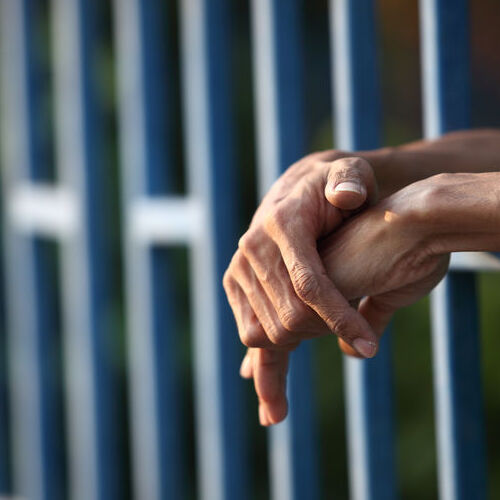
What are the 7 types of bail?
Normally, when you are arrested and jailed, a judge will set a bail amount that you will have to pay to get released. Often, you will need a bail bonds service to help you get out of jail, depending on the type of bail bond that’s set. In general, there are seven types of bail bonds that could be set for your release.
- Citation release: Normally issued for minor offenses like traffic violations or shoplifting under a certain amount. Instead of being booked and jailed, you are given a citation at the scene that orders you to appear in court on a certain date.
- Recognizance release: In certain circumstances, if you are jailed, instead of setting bail, the judge may release you on your own recognizance. This usually occurs for first offenders for minor offenses, when the judge feels certain you are not a flight risk.
- Cash bail: If you have the cash on hand for any bail amount, you can pay in cash and get released. In many cases, only cash is accepted, but some corrections departments will accept cashier’s checks or credit cards.
- Surety bond: This is one of the more common ways to get released and requires the services of a bail bond agent. In this case, you contact a friend or family member to go to the bail bond agent. A fee is paid to the bond agent, usually about 10% of the bond amount, and the bonds agent pays the bail.
- Property bond: In this form of bond, you put personal property up as collateral to be released. This type of bond can take some time to secure because the value of the property has to be assessed before it’s agreed upon.
- Federal bonds: A bond similar to a property bond. If you are jailed for a federal crime, you deal directly with the court instead of a bond agent for release.
- Immigration bail: There are actually two types of immigration bonds. A delivery bond works similarly to a regular bail bond. Departure bonds, on the other hand, are an agreement that the detainee agrees to be released only if they elect to return to their country of origin at a set time.
Anytime you need assistance getting out of jail and you require bond services in Jefferson, GA, the trusted professionals to count on are those at Double "O" Bonding. We are available 24/7. All you have to do is call 706-353-6467.
What is the most common type of bail?
Among all the different types of bail, probably the most common is using a bail bonds service to get a surety bond. Bond amounts are often too high for cash bonds, and people normally want to get out of jail quickly. Property bonds can take a week or more, whereas a surety bond can take just a matter of hours.
What is Bond and Bail?
While we often use bail and bond interchangeably, they actually are different. Bail is the amount the judge sets for your release. Sometimes the judge determines the amount, in other circumstances, there may be a bail schedule set for certain offenses. Bond is the amount secured from a bail bonds service so the bond agent can arrange for the release. You pay the bond agent a percentage of the bail amount and they pay the bail.
Which type of bail is similar to a credit contract
Unsecured bonds are similar to a credit contract. Unsecured bonds are not backed by any collateral. In this case, instead of going through a bail bonds service, the defendant signs a contract to appear before the court. If the defendant fails to show up, they must pay an agreed-upon bail amount.
How does a judge determine bail?
Several things come into play when a judge determines bail. Among the most significant aspects is the severity of the crime. Misdemeanor offenses, for instance, may have lower bail amounts than felonies. In fact, some misdemeanor offenses may have a set amount based on a schedule. Another factor that will influence what the judge sets for bail is the person’s past. A first offender, for instance, might be released on recognizance, while bail for a repeat offender could be set very high. The person’s criminal history, their connection to the community, and their trustworthiness will play into the judge’s decision. If you seem to be a flight risk, for instance, bail will probably be set fairly high.
Types of bail hearings
Generally, there is one type of bail hearing. You and usually your attorney will go before the judge and make a request for bail. The judge examines the case and your record and determines how much in bail you need to pay to be released. Most of the time the amount is determined by the judge. Occasionally, a bail hearing may be held after a person is convicted of a crime. This might happen if the defendant is appealing the case, but this type of hearing is rare.
Different types of bail conditions
While the primary condition of bail is that you return to court on your appointed date, judges may set other conditions before granting bail. You may, for instance, be required to make pre-trial check-ins with pretrial service officers who monitor you to ensure you’re complying with all the conditions set by the court. Often, you may also be given no-contact orders, preventing you from making contact with alleged crime victims. This often occurs in domestic violence or stalking cases. Other restrictions and conditions may also apply. You might have to remain employed or actively search for work, you might have travel or firearms restrictions placed on, or you may have to refrain from using drugs or alcohol. When you enlist a bail bonds service to get you released our primary concern is to see that you return to court on your appointed date, but we also want to make sure you comply with other conditions as well.
How long do you stay in jail if you can’t pay bail?
The unfortunate reality is that if you can’t afford to pay the bail, you usually will have to stay in jail until your court date. Unfortunately, you can be waiting in jail for several months. This is why you want to get help from a bail bonds service. Even if it may be difficult to pay the fee, we can get you out in a matter of hours. Most bond agents like those at Double "O" Bonding offer several payment options so you can afford to pay the fee.
What is bail reform
There are several organizations across the nation working to establish better laws surrounding bail and the amount of bail charged in some instances. These groups take several approaches to reduce the amounts of bail, as well as the number of people in jail who can’t afford to pay bail amounts. Some provide voluntary supervisory services to the courts that act as a substitute for detention. Others work with local, state, and federal governments to develop laws and strategies to improve the situation.

Call Today For Help
If criminal charges have been brought against you and you want to be released from jail, you want an established bail bonds service in Jefferson, GA to help you out. You can always count on help from Double "O" Bonding. We are available 24/7 to help. All you need to do is call 706-353-6467.
